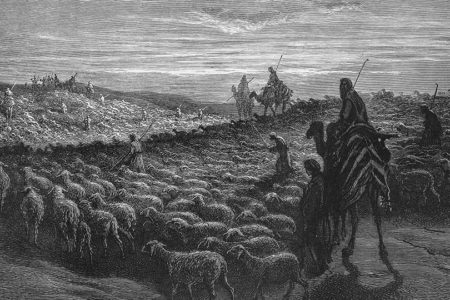We Have Heard This Before
As the world hears the gospel, more and more people will turn to Christ until Earth becomes a wonderful place of spirituality, peace, and righteousness. This position is called Postmillennialism; and people who hold to it consider it optimistic because it sees the world as getting better, with Christians at the forefront of making the planet a cleaner, greener, and more altruistic place to live. Such is the eschatology of the modern movement known as emergent church.
Emergent eschatology (doctrine of future things) is identical to the liberal Postmillennialism that flourished in the early 20th century. Postmillennialism is the view that Christ will return after the Kingdom age, which it defines as on Earth today in the body of the church. Postmillennialism does not hold to a future Messianic Kingdom or a future for Israel.
Conservative postmillennialists believe that, “through the proclamation of the gospel in the present age, an unprecedented number of people in the world—in fact, the vast majority—will turn to Christ and be saved.”1 The focus of God’s people, then, is to expand the Kingdom through the preaching of the gospel. As the world is increasingly evangelized, it will become a place of “spiritual prosperity, universal peace and righteousness, and economic well-being.”2 Loraine Boettner (1901–1990), a postmillennial theologian, summarized:
Postmillennialism is that view of the last things which holds that the kingdom of God is now being extended in the world through the preaching of the gospel and the saving work of the Holy Spirit in the hearts of individuals, that the world eventually is to be Christianized and that the return of Christ is to occur at the close of a long period of righteousness and peace commonly called the millennium.3
Liberal Postmillennialism shares some of the same optimism as its conservative counterparts but directs its attention to social enhancement of the planet.
Liberal postmillennialism focuses on societal transformation rather than personal conversion. Their “social gospel” sees the saving of society from social evil as the great purpose of the church. The mission of the church is not to preach the gospel to sinners in need of God’s great salvation, but, rather, to liberate mankind from poverty, racism, disease, war, and all kinds of injustice.4
The similarity between liberal postmillennialism and emergent theology is striking. The Postmillennial system, which was nonexistent in the early days of church history, was originally systematized by liberal Unitarian minister Daniel Whitby (1638–1726). His system grew legs due partly to the optimism of the age, but it lost steam when the two world wars of the 20th century shattered dreams of the world progressively improving. Since that time a more realistic understanding of human development has set in, and most Christians recognize (at least they did until the emergent conversation became popular) that the earth is not only not moving toward utopia but is more likely closer to annihilation.
Emergent Kingdom theology—like its liberal, postmillennial predecessor—is based not so much on the observation of an improving world but on feelings of desperation. Emerging church leader Brian McLaren admitted many might see his Kingdom view as a mere pipe dream. But if that is so, he asked, “What do [we] have to look forward to if they’re right? Simply more of the same in human history.”5
But truth does not emerge from groundless optimism or “what if” desperation; it emerges from Scripture. What God says about life now, the future, and the Kingdom is what matters. In answer to McLaren’s question, we have much to look forward to, for Christ will one day bring His Kingdom to Earth, at which time the very social and earthly issues that concern all of us will be made right.
But this Kingdom will come through the power of Christ, not the good deeds of men. It will come when He returns, not as a prelude to it. It will not only remedy societal wrongs, but it will usher in the worldwide righteousness and justice of Christ. We have much to look forward to when the Kingdom comes, but it will come as a result of God’s actions, not ours.
ENDNOTES
- Matthew Waymeyer, Revelation 20 and the Millennial Debate (The Woodlands, TX: Kress Christian Publications, 2004), 3.
- Ibid., 4.
- Loraine Boettner, “Postmillennialism,” in The Meaning of the Millennium: Four Views, R. Clouse (Downers Grove, IL: InterVarsity, 1977), 117.
- Paul N. Benware, Understanding End Times Prophecy (Chicago: Moody Publishers, 2006), 144.
- Brian McLaren, The Secret Message of Jesus (Nashville, TN: W Publishing Group, 2006), 128.







